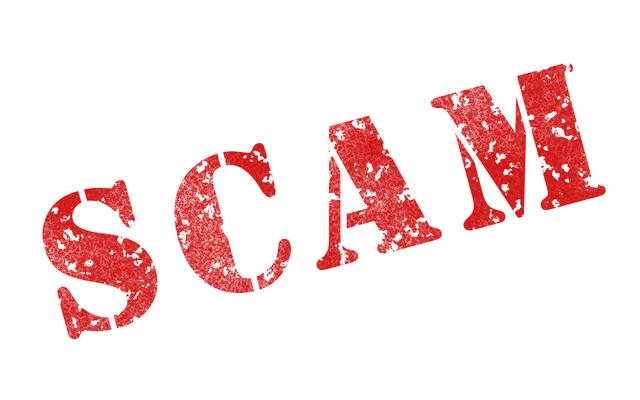- Introduction
- Overview of Gift Card Scams
- Gift Card Scams Involving Popular Brands
- How to Identify a Gift Card Scam
- Tips to Protect Yourself from Gift Card Scams
- Conclusion
- FAQs
Introduction
In 2024, the world has witnessed a concerning rise in gift card scams, particularly those targeting unsuspecting consumers through widely recognized retail brands like Amazon, Target, and Walmart. These scams often prey on individuals' trust and familiarity with gift cards, making them easy targets for fraud.
This blog post will delve into the various facets of gift card scams, starting with an overview of how these scams operate, the popular brands that are often exploited, ways to spot potential scams, and essential tips to protect yourself against these fraudulent activities.
As we navigate through this discussion, our primary goal is to equip you with the knowledge needed to safeguard your finances and identity against these devious tactics.
Overview of Gift Card Scams
Gift card scams have become increasingly sophisticated, evolving from simple phishing attempts to complex schemes involving social engineering. At its core, these scams exploit human psychology. The promise of immediate gains and urgency instills fear or excitement, prompting victims to react without critical thought.
These scams typically manifest through unsolicited phone calls, emails, or messages pretending to be from reputable companies. Victims are led to believe there’s an urgent need to pay a debt, claim a prize, or secure a service by purchasing gift cards and providing the card details. Once the scammer obtains the codes, the money is effectively gone.
One key aspect of these scams is their adaptability. Fraudsters continuously refine their methods, using contemporary events or fears such as economic worries or health crises to tailor their pitches. It’s crucial to remain vigilant and aware of the evolving strategies employed by these scammers.
Moreover, the anonymity of digital transactions adds another layer of difficulty in tracing and apprehending these fraudsters, making it vital for consumers to be informed and alert.

(Image: Pixabay/@bytrangle)
Gift Card Scams Involving Popular Brands
Several major brands have come under fire due to being targeted by gift card scams. Amazon, Target, and Walmart are frequently mentioned in anecdotal reports and case studies. Each of these companies faces a unique set of challenges in preventing scams.
Amazon is often impersonated in calls or emails claiming that your account has been compromised, urging you to purchase gift cards to 'verify' your identity or clear up an alleged issue. This method typically invokes panic, compelling users to act hastily. Victims quickly realize too late that they’ve fallen victim to a ruse.
Similarly, Target has seen a spike in scams where customers receive messages claiming they’ve won a gift card but need to verify their account or personal information to claim it. Often, these messages appear alarmingly legitimate, using official logos and email formats, heightening the deceit.
Walmart is not spared either; reports indicate that recipients of fraudulent communications were misled into thinking they had to settle some fees related to their purchases via gift cards. The pressure mounts as victims become convinced their issues can only be resolved through such means.

(Image: Pixabay/@Mohamed_hassan)
How to Identify a Gift Card Scam
Identifying a gift card scam is paramount to avoiding financial loss. Awareness of common signs can help you steer clear of these fraudulent practices. One significant red flag is an unsolicited request to purchase gift cards. Always maintain skepticism if approached directly; reputable companies do not ask for payments via gift cards.
Another indicator is urgency. Scammers often create unnecessary time pressure, claiming you must act fast to avoid dire consequences. If you feel rushed, take a step back and assess the situation critically. This is often a manipulation tactic to bypass rational thinking.
Verify the source of any communication you receive about a gift card. For instance, if you receive a call claiming to be from a company, hang up and contact that company’s customer support to confirm whether the communication was legitimate.
Additionally, be cautious of offers that seem too good to be true. Promises of free gift cards or unbelievable discounts are common bait used by scammers. Engaging with these offers often leads to requests for personal information or upfront payments.

(Image: Pixabay/@TheDigitalArtist)
Tips to Protect Yourself from Gift Card Scams
Taking proactive measures can significantly reduce your risk of falling victim to gift card scams. First and foremost, educate yourself and others about these scams. Knowledge is the best prevention tool, so stay informed about the latest tactics and trends that scammers employ.
Establish strong privacy settings on your online accounts. Most platforms provide options that allow you to limit who can contact you or view your information. Carefully review these settings to protect against unauthorized access.
Be skeptical of unsolicited communications requesting payment methods like gift cards. Develop a habit of questioning their legitimacy. Instead of responding, independently verify through official company channels for guidance.
Lastly, share your experiences and alert others as you encounter scams. Whether it's through social media, community forums, or local meet-ups, helping raise awareness can fortify communal resilience against these criminal activities.

(Image: Pixabay/@geralt)
Conclusion
As we conclude our exploration of gift card scams in 2024, it's evident that while the landscape is constantly changing, the core tactics utilized by scammers remain similar. Maintaining vigilance and educating yourself about fraud detection is vital. With well-informed principles and protective measures, individuals can fortify themselves against these predatory tactics.
Prioritize verifying communications and think critically about unsolicited requests, especially those involving urgent deadlines or payments via gift cards. By fostering awareness in yourself and communities, we can collectively strive toward reducing the impact of gift card scams on society.
FAQs
What should I do if I believe I'm a victim of a gift card scam?
If you suspect you've fallen victim to a gift card scam, immediately contact the retailer associated with the gift card. Report the incident and provide all necessary details. Additionally, consider reporting it to local law enforcement and organizations like the Federal Trade Commission (FTC) or the Internet Crime Complaint Center (IC3).
Are all gift card requests scams?
No, not all gift card requests are scams, but vigilance is required. Legitimate companies rarely request gift cards as payment; however, employees may offer gift card incentives. Always verify the request's authenticity before proceeding.
How can I report a gift card scam?
You can report gift card scams directly to the retailer involved and also to authorities like the Federal Trade Commission (FTC). Providing detailed information helps track and combat these schemes.
What are some signs that a gift card offer might be legitimate?
Legitimate offers often come through verified company communications. Look for proper branding, confirmation through official channels, and comprehensive terms associated with the offer. Be cautious of vague promises with little detail.
Can I get my money back after falling for a gift card scam?
Retrieving funds lost to a gift card scam is often challenging. However, it’s still essential to report the incident to the retailer and local authorities. While recovery isn’t guaranteed, reporting helps prevent future scams and alerts necessary parties.

